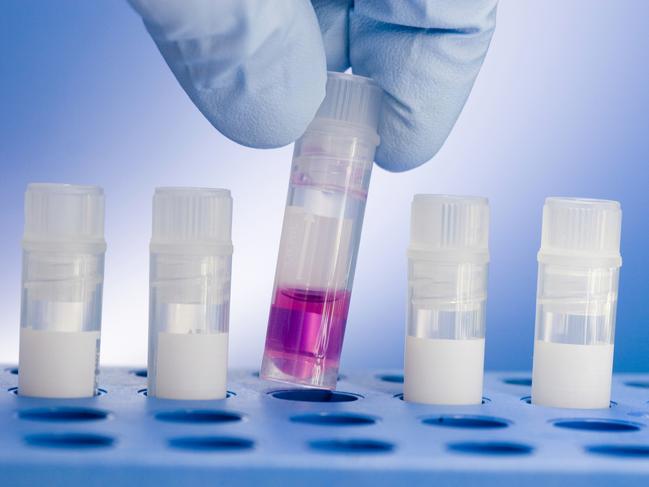New IVF pill: Game-changing move to create a baby
As millions of Aussies try IVF to conceive, a groundbreaking new tablet has been tested. See how it works.
Health
Don't miss out on the headlines from Health. Followed categories will be added to My News.
A new pill could boost the chances of successful IVF treatment, scientists say, with initial trials showing “promising” results.
Researchers say the pill, known as OXO-001 and created by Spanish biotech company Oxolife, could result in a 7 per cent increase in live births.
The drug is designed to act directly on the inner lining of the womb, making it more receptive to the embryo during the implantation process.
One in three women successfully have a baby in their first IVF cycle, a new report by UNSW Sydney medical researchers shows.

Researchers set out to test whether the drug - which can improve during fertility treatment,
The pill is the first of its kind and had already gone through safety checks in early studies, known as pre-clinical trials, The Sun reports.
Oxolife chief executive Dr Agnes Arbat said: “Most rounds of IVF or ICSI still end in failure — many because a viable embryo does not implant.
“A simple-to-take pill that materially improves the chance of success would therefore be of huge benefit to those who want a baby.
“This proof-of-concept phase two study shows that hope is now a step closer.”
SEARCH FOR IVF SUCCESS RATES BY CLINIC
Ninety-six women aged 40 and under who were receiving fertility treatment - either IVF or intracytoplasmic sperm injection (ICSI) with donor eggs - at 28 centres across Europe took part in the study between September 2021 and January 2023.
They were either given a dummy drug or OXO-001, to be taken twice daily one menstrual cycle before the embryo transfer and for five weeks afterwards.
Researchers who presented their study to the European Society of Human Reproduction and Embryology’s annual meeting in Amsterdam.hailed the findings as “clinically significant”.
There was also an increase in the number of mothers who went on to have a live birth, they said.
The live birth rate was 42.6 per cent for women who took OXO-001 compared to 35.7 per cent among those who took the placebo, according to the study, which is being published in the journal Human Reproduction.
SEARCH FOR SUCCESS RATES
Side-effects included headaches, nausea, vomiting, gastrointestinal issues and dizziness.
The drug will now be tested in a larger group of women and will include those who are using their own eggs.
Dr Arbat said: “This study was purposefully designed to include only women who used donor eggs so it could single out the true effect of OXO-001 on the endometrium.
“However, we believe OXO-001 has the potential to work equally well in those using their own eggs, and we are already planning a pivotal phase three clinical trial in this more extensive group to support product registration.”
Dr Ignasi Canals, chief scientific officer for Oxolife, added: “We are thrilled with the results of this trial, which highlight OXO-001’s potential to become the first therapeutic treatment to increase embryo implantation success, with a non-hormonal drug using a new mechanism of action, acting directly on the endometrium.”
More Coverage
Originally published as New IVF pill: Game-changing move to create a baby





